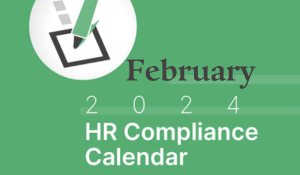When considering business interruption insurance, one crucial decision employers face is whether to...
Navigating Hiring Practices and Regulations in 2024
In the ever-evolving landscape of employment regulations, both employers and employees must stay informed about the changes that affect their working relationships. One such significant change is Senate Bill (SB) 723, which brings modifications to rehiring and retention practices, specifically for those affected by the COVID-19 pandemic.
Redefining the Laid-Off Employee
Before this update, existing legislation mandated that employers provide laid-off employees with information about available job positions for which they are qualified. Furthermore, employers were required to offer these positions to laid-off employees based on a preference system, following specific timelines and procedures. Additionally, it was prohibited for employers to take adverse actions against laid-off employees for seeking to assert their rights under these provisions.
A "laid-off employee" was defined as someone who had been employed by the same employer for six months or more in the 12 months leading up to January 1, 2020, and whose most recent separation from active service was due to a COVID-19-related reason. Such reasons included public health directives, government shutdown orders, business slowdowns, reductions in the workforce, or other non-disciplinary economic factors associated with the COVID-19 pandemic.
SB 723's Impact
However, SB 723 brings significant changes to this definition. Under this new legislation, a "laid-off employee" is now any individual who has worked for the same employer for six months or more and whose most recent separation from active employment occurred on or after March 4, 2020, due to reasons linked to the COVID-19 pandemic. These reasons continue to encompass public health directives, government shutdown orders, lack of business, reductions in force, or other non-disciplinary economic factors tied to the pandemic.
One crucial aspect introduced by SB 723 is the presumption that a separation attributed to a lack of business, reduction in force, or other economic, non-disciplinary reasons is indeed connected to the COVID-19 pandemic. This presumption remains valid unless the employer can establish otherwise through a preponderance of evidence.
In addition to these changes, SB 723 also extends the previous repeal date of December 31, 2024, to December 31, 2025, ensuring that these regulations will continue to be in effect for an extended period.
Addressing Inquiries About Applicant Cannabis Use (SB 700)
Amidst evolving employment laws, another significant development in 2024 is Senate Bill (SB) 700, which provides additional protection for job applicants about their cannabis usage history.
Existing Anti-Discrimination Measures
Under the existing California Fair Employment and Housing Act (FEHA), various forms of employment discrimination are already prohibited, and the Civil Rights Department is empowered to investigate and prosecute complaints related to unlawful practices. However, as of January 1, 2024, Assembly Bill 2188 (AB 2188) takes it a step further by making it unlawful for employers to discriminate against individuals based on their off-the-job and away-from-the-workplace cannabis use, with certain exceptions.
SB 700's Additions
Senate Bill 700 builds upon these foundations by making it illegal for employers to request information from job applicants concerning their past cannabis usage. This means that information about an applicant's prior cannabis use, even if present in their criminal history, cannot be considered unless employers are allowed to inquire about such information under specific provisions of the FEHA or other relevant state or federal laws.
These changes are pivotal in ensuring fair and unbiased employment practices for individuals who may have engaged in cannabis use outside of their professional lives. Employers must now be cautious when considering an applicant's past cannabis use and refrain from making hiring decisions based on this aspect of their history.
In conclusion, staying informed about these evolving hiring practices and regulations is essential for employers and employees in 2024. SB 723 redefines the parameters of a "laid-off employee," while SB 700 extends anti-discrimination measures related to cannabis use. Adhering to these updated regulations will contribute to California's more equitable and compliant employment landscape.
Do you need more help navigating through the upcoming calendar year? With the many updates and changes happening stay up to date on your business with the help of the TPG Payroll & HR Specialists. Call us at 909.466.7876 for more information!
Also, learn about Noncompete Agreements in 2024: What You Need to Know or the new Wage and Hour Changes in California, on our blogs/resources page.



